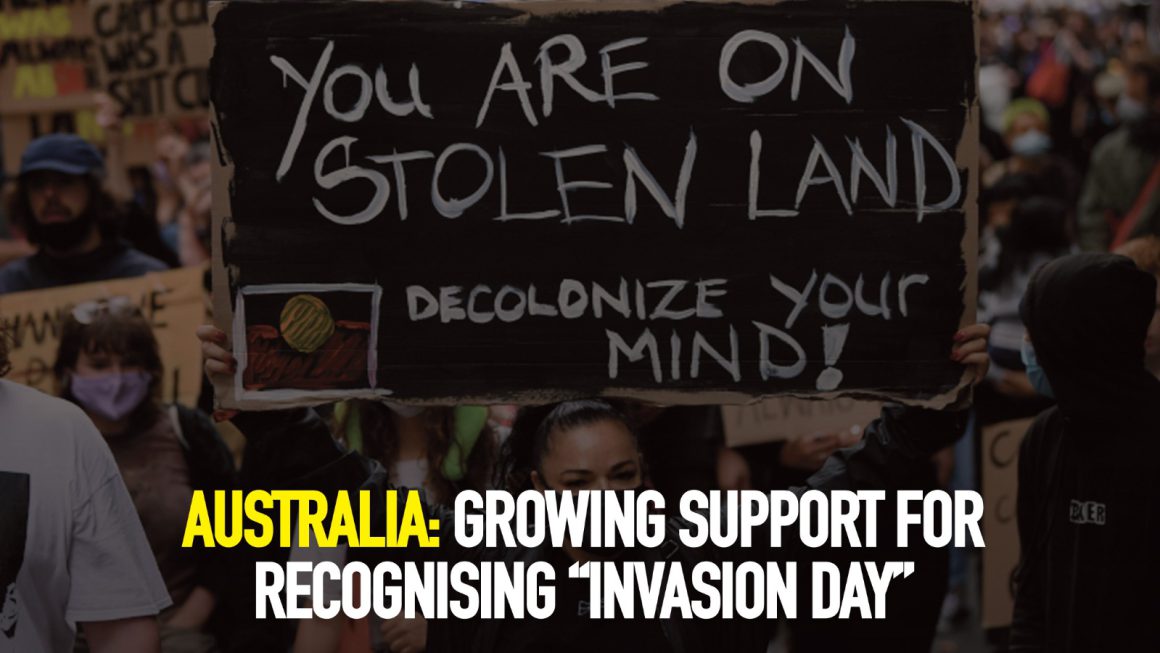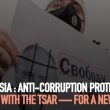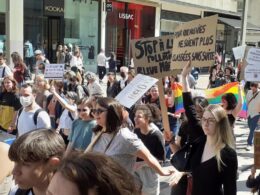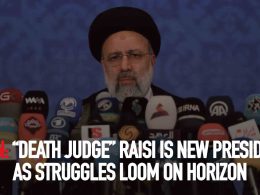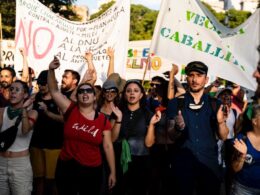January 26 will once again see Invasion Day rallies for Indigenous rights across Australia. More and more people in Australia recognise the hurt associated with the official ‘Australia Day’ holiday.
January 26 was chosen as the date the First Fleet arrived in 1788. It is offensive to increasing numbers of people that we have a day of celebration that marks the beginning of a genocide against Aboriginal people. Celebrating Australia Day as the ‘founding’ of Australia is an attempt to erase the history of Indigenous people.
But injustice against Aboriginal people is not just a part of history. Today, capitalist society continues to treat Indigenous people as second-class citizens. Aboriginal people have shorter life expectancies and are locked up at a disproportionate rate, and even murdered in custody. Even the Stolen Generations are not simply a matter of history, with Aboriginal children over-represented among children removed by Child Protective Services in Australia.
There are ongoing efforts to de-legitimize remote communities, pushing people from their land on behalf of the mining industry. Refusing to invest in communities creates a cycle of unemployment, which leads to more Aboriginal people having to rely on welfare payments. From there, many are pushed to work for the dole.
Last year’s Invasion Day rallies saw tens of thousands of people marching across the country. One marcher told ABC News: “We’re hopeful because we see more and more non-Aboriginal people joining us.” This has been a feature of the last few years, with the Melbourne rallies moving from over a thousand participants in 2015 to more than ten thousand by 2017.
Rallies organised by Warriors of the Aboriginal Resistance grew large enough to interrupt the official Australia Day parades, taking over the streets in large numbers. These rallies regularly received supportive comments from people who had come to see the official march, including people carrying Australian flags.
Since then, a number of councils in Tasmania, Victoria and New South Wales have dropped their official Australia Day celebrations. Cricket Australia has also made the decision to drop references to ‘Australia Day’.
In 2020, speakers at the Invasion Day Rally included relatives of Kumanjayi Walker and Tanya Day, both of whom died at the hands of police and while in custody. The rally included a minutes silence for Veronica Nelson, who died at the beginning of 2020. When murders by police in the US sparked the global Black Lives Matter movement, the movement was joined by protesters in Australia, linking police violence against Aboriginal people with violence against African and Indian communities in Australia, amongst others.
The enormous 2020 Black Lives Matter protests in June saw over a hundred thousand in the streets, despite a lockdown in Melbourne. Protesters wearing facemasks and practising 1.5 metre social distancing came out to oppose racist policing, drawing links between the experiences of Indigenous people, migrant communities, and people overseas.
A poll conducted by Essential Media this month found more than half of respondents supported either moving Australia Day away from January 26 or dropping it entirely. More and more people are convinced that Australia Day is an inappropriate event in the light of the history of racism and genocide attached to January 26. But the establishment chose January 26th for a reason.
Their goal is to make the history of capitalism seem bloodless. They want to reinforce a myth that our history is united, peaceful, and only marked by progress. The initial invasion of Australia by British capitalism is a marker for them, but even if we changed the date away from January 26th, the ruling class still has an interest in covering up the real divisions in our society with a national day.
Most working class people want to celebrate the good aspects of their lives, the rights and standards of living we have won in the past. But many of those rights and standards are eroded by the same system that drives racism and genocide.
Everything including our voting rights, the 8-hour day, time off on weekends, free basic healthcare and minimum wages had to be wrestled off the government and employers. Nothing was given over without a struggle.
To really celebrate the good things we have won, we should fight for May Day to be made a public holiday in all states. This is the traditional day the labour movement celebrates working class struggles and victories. At the same time, we should recognise January 26 as Invasion Day, to mark the history of Indigenous resistance and survival, and commemorate the violent history associated with January 26.
The increased support for Indigenous liberation and recognition of Jan 26 as Invasion Day is due to the ongoing determination of Indigenous rights activists. But even if the date is changed, or January 26 is recognised as Invasion Day, the material basis for racism will still exist.
To actually change the course of history, we need a united movement that can challenge capitalism. The fight for Indigenous rights must be linked to the struggles of all oppressed people, and to the fight for worker’s rights, for a better standard of living for all. National days of protest, like Invasion Day, can lay the foundations for a large, organised movement of ordinary people, putting forward a different vision of society.





